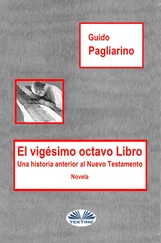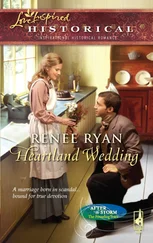On my twenty-first listening of Bebe’s message I finally understood its true meaning. It was McCabe’s final dismissal (“I got tired of being a kept woman”) in all three of its possible versions. If “sweetie” was McCabe herself, it was an added slap, sarcastic rather than endearing; if it was a new paramour—or if it was in the plural, “sweeties”—it was as meaningless as an air kiss, and “I got tired of being a kept woman” was still an indictment of McCabe for the whole world to hear.
I had stuck my finger in a live outlet: Bebe had settled the score. The jolt almost made me give up McCabe. I packed my bag and threw out my pitiful McCabe mementos: the wine corks and cheese wrappers, the rosebush twine, a button fallen off her hunter’s shirt, the nurse’s bag. Bebe would be thrilled to see me in L.A. now that she was back in play. She might even get me a job there. We would let bygones be bygones. I would rein myself in, keep to best-friend behavior. We would go clubbing again. Everybody would think once more that we were lovers. I wanted to be envied. I wanted to be seen in public with the most handsome, inaccessible, expensive of them all. This fantasy lasted only one evening, complete with images of the long-extinct palm trees, blue frothy drinks, Technicolor smog sunsets, red convertibles, Pacific beaches, and balmy weather, and a newly incestuous Bebe, as alluring as ever, but now protected by the strongest taboo. What burst the bubble was not just the illogic of severing “Bebe” from “lust,” which could not be done, but realizing that she had ceased to be the emblem of all my failures. Bebe was not why I had to kill McCabe. Her revenge on McCabe was not mine. The McCabe connected to my Bebe-related humiliations had long ceased to exist. She had purged herself from this world, without my intervention. I retrieved from the wastebasket the corks, wrappers, and twines that were the only proof that my McCabe had ever existed. The suitcase I left packed. From then until the end, I dressed out of it, keeping it always ready to go.
The search for McCabe now filled every minute of my days and nights. I called every major art gallery and museum in New York City, Barcelona, London, and all other strategic points east and west, pretending to be a foreign collector. McCabe’s SoHo gallery was open. It had never closed. In fact, it was expanding upward and sideways, to the floors above and the adjacent buildings. They had just sold a Beuys for a record figure. It had been the biggest ever private sale of a living artist. McCabe, on the other hand, had not been seen lately on the Manhattan social circuit. Some thought that they had glimpsed her at her gallery recently, or that someone they knew had, but when pressed could not remember when or whom. Others said that she was on a roll after the Beuys killing, flush with cash and anointed with the mystique of winners, that being picked by McCabe was now every living artist’s obsession, that she was lying low these days to keep them off her back, planning her next coup. Others put her variously in Germany, India, or even China, where she was opening a branch across from the Guangzhou Opera, or signing the new hot young thing, someone whose name no one could remember given how one Chinese name sounds like the next, but who, everyone said, was the Chinese Basquiat, not at all Basquiat-like in his art, but Basquiat-like in sexy boy-genius raw power.
McCabe was a high-risk gambler. She had seized her chance, taking her business to the stratosphere from her Elmiran woods. She had fired and hired, bought and expanded, slashed and burned the competition from a distance. She had done in weeks what would take others years. All while playing nurse with you, Reason’s wormy voice hissed. No: while nursing me back to life, selflessly, devotedly, graciously, I said out loud, quashing the worm. Where did she find the time and energy to do so much? I began to admire her. Admiration had not been on my list of McCabe-related feelings until then. Now I was overflowing with it. I admired her intrepidness and intelligence. Making money wasn’t only a craft for the cunning, yet stupid. In McCabe’s brilliant hands it became art and science, war by other means, purview of the new Caesars, Napoleons, and Clausewitzes. McCabe calmly pacing the garden while planning her next campaign, her long legs the only part of her skinny body that moved, McCabe interrupting her inspired cogitations to take care of me, to be with me: I felt humbled by these images from our daily life whose meaning had been opaque and was now clear. McCabe was great and she was merciful. Oh, yes, she was merciful. That is why she shied away from her name. She did not need to trumpet her nature. Her deeds spoke for her. She was merciful as only a ruthless general can be. Did she know that I was planning to kill her? Had she shown mercy to her killer to prevent or to forgive the killing, or did her brilliant strategic mind conceive other outcomes? On the other hand, she may not have known or suspected anything, a lamb when not on the battlefield, her mercifulness flowing innocently from her to me and back to her, without beginning or end, goal or motive. It was in that returning ebb that her mercy carried back to her whatever little I could give: a piece of music, an ear for her bird tales, rotting feet, and moral misery.
I fell asleep to the image of McCabe, the merciful lamb, and the river of mercy flowing between us. I did not dream, but held on to a reality sweeter than dreams.
It was still dark when I woke up. I left a last message with the gallery’s voicemail android: “Hey, McCabe. There’ll be someone here on Christmas Day who you want to meet, and who’s dying to meet you. Come over.” Christmas was forty-eight hours away.
Two days before Christmas, McCabe’s work-booted feet followed me everywhere as I got the house ready. I vacuumed, waxed, polished, dusted, and washed floors, rugs, walls, furniture, doors, silver, windows, and china. I cleared snow off the driveway. Drove for eight hours to the state capital to bring back all that Elmira lacked: the deep-yellow Danish butter that McCabe liked to lick off her index finger; the Rocamadour cheeses that she had inspected with suspicion until I cut a piece and put it in my mouth (she hated destroying the little cheese’s perfect roundness, so I always had to cut them for her when she wasn’t looking); the honeyed Anatolian peaches and pears, near-extinct from war, which she stared at, but did not taste; the mangoes, guavas, sugar-apples, nísperos, and guanábanas she smelled and touched with great curiosity so often without eating them that I asked Petrona to hide some in the back of a cupboard as a reserve for Sundays, Petrona’s day off; and the side of venison I knew would delight McCabe, the insatiable carnivore. In Elmira, I arranged for the delivery, at the last minute of Christmas Eve, of four dozen yellow, red, white, and pink roses after bribing the flower-shop owner into forgetting an order previously placed by the wife of a prominent orthodontist. I also bought cornmeal, molasses, and the county’s sublime ham, its only world-class product, lamentably still unknown to the world at large. I did not mind showing my naked face in town. Secrecy was no longer needed. It was a relief that the Elmira public library was shut for the holidays, though I’m embarrassed to confess that I peeked twice through the darkened windows, half hoping and half dreading, against all logic, to find Mrs. Crandall there. The table where she had lain naked was still empty. She had removed the heavy dictionary that I placed under her buttocks, so I could reach deeper into her cunt. The memory and the example of Mrs. Crandall kept my body going those forty-eight long hours before Christmas as I slaved to prepare the house for the return of McCabe. I had no doubt that McCabe would come back. She would take the bait. She was too much of a gambler not to. I had lied to McCabe, the great and the merciful: I expected no one else on Christmas. It was a necessary lie for the greater good, hers and mine, a lie that, retroactively, when it had accomplished its beneficial end, would cease to be a lie.
Читать дальше












